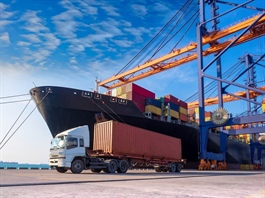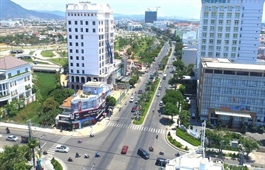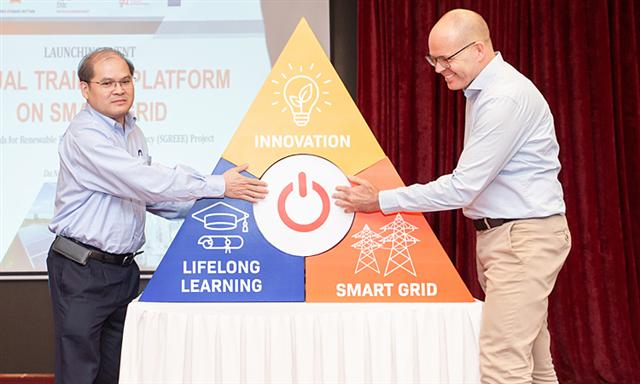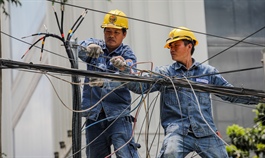Two key appeals pulling industrial relocation out of China into Vietnam
Two key appeals pulling industrial relocation out of China into Vietnam
The benefits of recent trade agreements, low labour costs, and highly appealing incentives are amplifying the nation's appeal and encouraging manufacturers hit by US tariffs to relocate out of China. Local developers are planning more industrial parks to capture this increasing foreign investment and ramp up Vietnam's appeal.

Two key appeals are pulling industrial relocation out of China into Vietnam
|
Savills Vietnam's recent Industrial Whitepaper showed how Vietnam has become a major alternative manufacturing destination with quantifiable gains for businesses wanting to diversify supply chains.
Hoang Nguyet Minh, associate director of Investment of Savills Hanoi, commenting on the growing trend: “Vietnam is clearly benefiting. Developing fresh industrial real estate is a smart long-term play, especially considering the clear advantages Vietnam offers from trade agreements, tax regimes, and low labour costs. Adding further appeal is the ongoing national infrastructure development which is now ranked second in ASEAN after Indonesia.”
There are two critical factors of this tipping point. First, it is one of the most competitive commercial tax regimes in Asia. There are corporate income tax (CIT) incentives, fixed asset import duty exemptions, and exempted land rental fees. Notable incentives include zero profit tax for the first two years – instead of the usual 20 per cent, followed by a 50 per cent reduction for the next four years.
The government provides even more preferential CIT incentives for prioritised industries, such as those in Industry 4.0 and hi-tech manufacturing, projects in special economic zones (SEZs) or in socioeconomically challenged regions, and large scale projects that meet minimum requirements for investment capital, revenue, and headcount. Projects qualifying for any of the above will have a 10 per cent CIT rate for 15 years, four years of CIT exemption, and a 50 per cent tax reduction for the next nine years.
Vietnam is also one of the most cost-efficient markets for industrial building costs, according to Turner & Townsend’s 2019 Construction Costs Survey. In Ho Chi Minh City, the average construction cost of basic factory and warehousing is $352 per square metre while factory units and larger distribution centers cost $412 per sq.m and hi-tech factories $618 per sq.m.
Next, multinationals producing high value-add products such as electronics will be under mounting cost-cutting pressure to offset pandemic-induced revenue disruption. Establishing production facilities in Vietnam represents immediate gains and the longer-term strategic benefits of diversifying and developing local supply chains.
Historically, wage inflation tends to happen after the global crisis abates. Labour costs in China already being three times higher than in Vietnam will further prompt multinational manufacturers to consider relocating to more cost-effective Southeast Asian markets.
During the first outbreak, 15 multinational manufacturers announced expansions or planned relocations to Vietnam, such as Apple Computers suppliers Pegatron and Foxconn from Taiwan; Sharp, Nintendo, and Komatsu from Japan; and Lenovo from Hong Kong.
These 15 enterprisescomprise nine SMEs and six large-scale projects. The majority produce medical equipment, semiconductors, mobile phones and parts, and air conditioners. The Japan External Trade Organization (JETRO) confirmed that these moves were encouraged to improve supply chain efficiencies, plug gaps caused by pandemic effects, while strengthening economic and industrial ties with ASEAN.
Local manufacturing salaries of $252 per month remained regionally competitive, after rising from $237 per month in 2018. By comparison, China manufacturing salaries are $968 and $766 per month in Malaysia. While labour costs do not drive sustainable industrial growth, they remain important for lower value-add industries such as textiles and furniture.
However, as Vietnam turns its manufacturing focus to higher value-add industries such as high-tech or supporting high-tech manufacturing, these companies may be forced to relocate elsewhere in Southeast Asia. While the transition to higher-value industries continues, the focus will switch from the labour force to the quality of labour.
To effectively accommodate higher-value projects it is essential to continue investing in education, notably IT, mathematics, and the sciences. This issue has been recognised with the government committing to create a national skills development plan as part of FDI Strategic Recommendations 2020 to 2030.
Sector reliance on supply chains migrating out of China is increasingly evident with many landlords anticipating a busy year once restrictions are lifted.

























